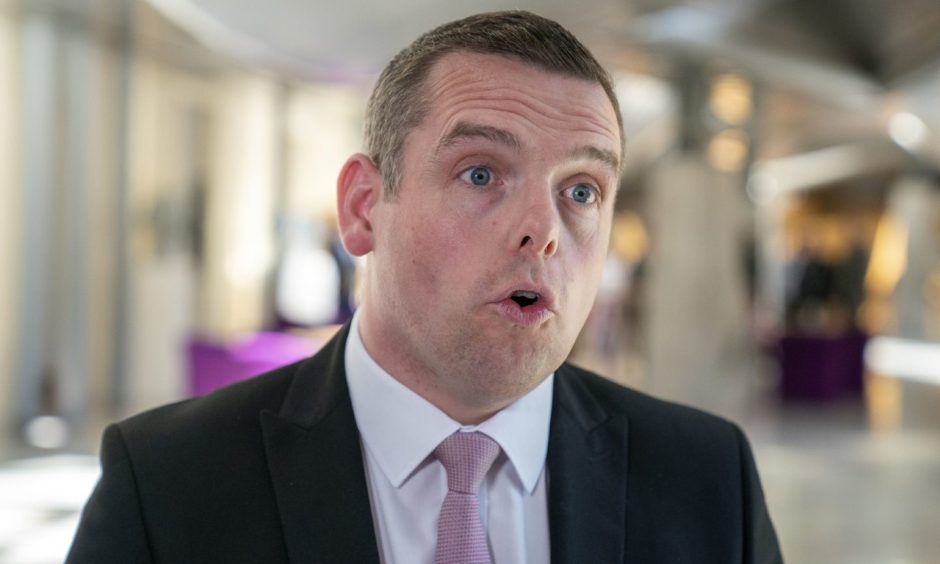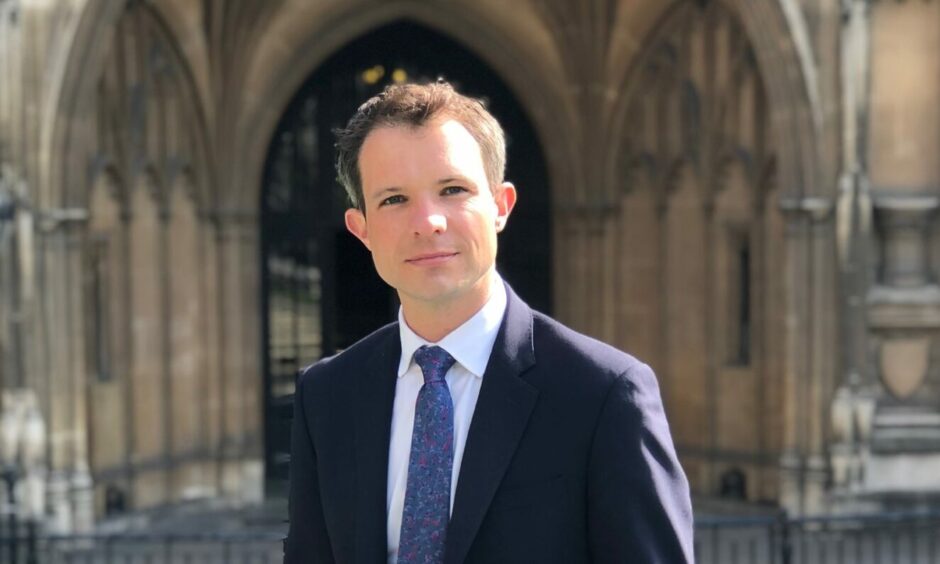Scottish Tories are mounting a lobbying campaign to convince their leader Rishi Sunak not to extend the windfall tax on oil and gas firms, warning it would be an “unacceptable blow” to the industry and workers.
West Aberdeenshire and Kincardine MP Andrew Bowie said he hopes the levy will be reduced or scrapped.
And Moray MP Douglas Ross said he has spoken to the prime minister about the policy, as well as Chancellor Jeremy Hunt and energy minster Claire Coutinho.
Mr Ross confirmed further talks are set to take place on Monday before Wednesday’s UK budget.
The tax was introduced as a temporary measure in 2022 as energy prices soared and then was extended for a further two years until 2028.
Reports last week suggested the chancellor could look to extend the energy profits levy as a way to generate enough income to cut personal taxes.
However, Mr Ross told journalists he would not support any such move.
An unacceptable blow
He said: “When it was introduced, it was introduced with the support of some big businesses within that sector.
“Things have moved on a lot since then. And what I’ve heard from Offshore Energy UK, indeed even just last night at their reception here at a conference, it’s about confidence and confidence going forward.
“And that would be an unacceptable blow to the confidence and the confidence of the jobs and the workers here [in the North East], and I have and will continue to make that most strenuously to the chancellor in the UK Government.”
Meanwhile, nuclear minister Andrew Bowie hinted the UK Government is considering reducing the levy or scrapping it completely.
He told the P&J: “I take the view, the department takes the view, the government takes the view, that the energy profits levy is there but we’re not saying it’s going to be remaining as it is forever.”
Mr Bowie, who publicly opposed the windfall tax before becoming a minister, added that the chancellor is currently reviewing it and “looking at the level at which we might be able to reduce or get rid”.
Labour announced plans last month for what it described as a proper windfall tax, saying it would raise the rate from 75% to 78% and keep it in place until 2029.
Tories in Scotland are focusing heavily on the north-east at the next general election so any similar announcement from the chancellor could upset their plans.
Warning for Scots over nuclear
Mr Bowie also used his interview to claim Scottish nuclear power could contribute up to 5% of the UK’s overall electricity demand and slash household energy bills – but is being blocked for “ideological reasons”.
The UK Government is undertaking its largest investment in nuclear for 70 years but the Scottish Government has a de-facto ban on new plants being built.
The SNP and Greens argue nuclear is expensive, unsafe and not wanted in Scotland.
Mr Bowie said one of the greatest frustrations in his job is bringing “huge positive change” and investment to communities in England and Wales while constituencies like his own in West Aberdeenshire and Kincardine lose out.
A wasted opportunity
The MP pointed to the example of Finland, where he said energy bills have been slashed by 70% as a result of nuclear, and said it is “barmy” Scotland is not doing the same.
“I think it’s a huge wasted opportunity,” he said.
“I understand the opposition to nuclear in some quarters. Some people say we just don’t need it in Scotland.
“We’ve got wind, we have tidal, we’ve got oil and gas, so why do we need nuclear as well? But why not? Why not allow nuclear to be part of the mix?
“Why not allow communities in Scotland where nuclear has been traditionally based, where highly-skilled jobs are at a premium, to get a piece of the pie?”
More than 20 countries signed a joint declaration at the COP28 climate summit saying nuclear will play a “key role” in achieving net zero as they aim to triple global output.
How is nuclear handled in Scotland?
Mr Bowie said the government’s aim is for nuclear to produce 25% of the UK’s electricity demand by 2050 and that up to 5% could be generated in Scotland.
He told a recent event at Holyrood that the Scottish Government’s block on nuclear developments is “an act of economic vandalism” and “bordering on criminally negligent”.
Scotland has just one remaining power plant – at Torness in East Lothian – but it is slated to close by 2028.
After that, nuclear will still be part of Scotland’s energy mix but it will only be generated south of the border.
The Scottish Government said it does not support building new nuclear power stations under current technologies because it is expensive, will take years – if not decades – to become operational and carries significant environmental concerns.
It added: “Through our draft Energy Strategy and Just Transition Plan we have set out a clear pathway to deliver on global commitments and capitalise on the enormous opportunities offered by becoming a net zero economy.
“Significant growth in renewables, hydrogen and carbon capture storage provide the best pathway to net zero by 2045, and will deliver a climate-friendly energy system that delivers affordable, resilient and clean energy supplies for Scotland.”




Conversation